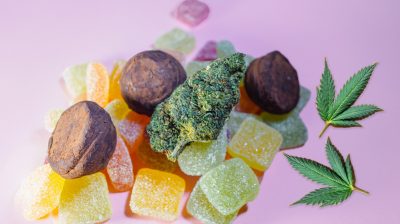Harm reduction advice for when you are using drugs
If you choose to use drugs, you can reduce the risks to your health by following simple harm reduction advice.

People use drugs for a variety of reasons; to experiment, to unwind, to socialise and more.
When using drugs, particularly if trying a drug for the first time, it is always a good idea to enter into the experience with as much information as possible. Taking drugs and being under the influence is not without its risks, both physically and mentally, as well as legally.
There are steps that you can take when using drugs to reduce the likelihood of harm and ensure that you and those around you are safe and well both during and after the experience. Here is some harm reduction advice to reduce the risks associated with using drugs.
Harm reduction advice if using drugs
Start low and go slow
It is difficult to assess how strong a drug is, or even what substances a drug contains, before use. Most recreational drugs are illegal and are manufactured illegally in unregulated environments. Even if certain pills or powders look the same, their contents can be very different.
This is why it is important to take small doses to start – such as splitting an ecstasy pill into halves or quarters, or taking a small bump of a powder – and waiting to feel its full effects before taking any more.
The length of time it takes for a drug to kick in depends on what you take and how you take it. Once you take a dose, it is best to wait 1-2 hours before taking more.
Check in with yourself
There are a few different ways you can check in on yourself to make sure you are doing okay while taking drugs. If you are dancing a lot or in a large crowd, keep an eye on how warm you get and take breaks to prevent yourself from overheating.
It is a good idea to plan how you will get yourself safely home before you start taking drugs and pack accordingly, such as by bringing extra layers or more comfortable shoes.
It is also always good to check in with how you are feeling emotionally both before, during and after taking drugs. Your mindset can influence how you experience drugs, so if you are worried that you may be depressed or anxious to begin with, it may be a better idea to avoid substances for a little while.
If you find yourself feeling upset or overwhelmed by your drug experience, tell a trusted friend or loved one, move to a calmer, quieter space and give yourself time to decompress. Harm reduction is about protecting your mental well-being as well as your physical.
Harm reduction: Be cautious of mixing substances
Polysubstance use, the term that describes using multiple drugs over the course of one drug-taking experience, is common. This does not mean it is risk-free; mixing drugs can be potentially dangerous depending on the combination. Harm reduction does not equal harm elimination.
Combining two depressants, in particular, is risky; because both substances can slow your breathing and reduce consciousness. Combining them can increase the chances that a person will pass out or stop breathing when they take it.
Stay hydrated
Many substances cause dehydration as a side effect, however, some substances, such as MDMA and cocaine, are more likely to make users feel thirsty. Staying hydrated is important, but it is also possible to overdo it (overhydration), which can pose its own risks, such as dangerously reducing the level of electrolytes (such as salt) in your blood.
Drink water regularly throughout the course of a night but do not put pressure on yourself to ‘chug’ water. Do not exceed more than a pint of water per hour.
Stick with people you trust
In general, it is safer to take drugs with others than it is on your own. Where possible, try not to take a substance by yourself and take drugs with people you trust so you have people around you who can make sure you remain safe and well.
If trying a drug for the first time, it is best to try it with someone you trust who has taken the drug before. Perhaps make a specific plan with your friend about what you will do together while taking drugs and how you will look out for each other’s welfare during the experience. Find out more about planning a drug trip.
Whether you are at a house party, nightclub or festival, try to stay with people you trust and let them know if you feel unwell. Equally, try to make sure that anyone in your group who has taken a lot of substances does not get lost, and monitor their condition.
If you or someone you know becomes sick or loses consciousness, make sure you get medical assistance as you could be dealing with a drug emergency.
Although it may feel scary, it is helpful to let medical professionals know what has been consumed. Even though the drug supply may be contaminated, knowing what they have taken will help healthcare staff provide support.
Harm reduction: Avoid sharing tools
If you are snorting drugs, try to avoid using things like house keys, rolled-up notes or snorting lines off surfaces like toilet cisterns. There is a risk of contracting infections such as Hepatitis A and Hepatitis B if you do this, especially if you are sharing tools with others.
To minimise risk, you can use small metal straws, a small metal spoon, clean rolled-up paper (like a post-it), or your own plates for snorting drugs.
Do not share these tools, discard them after each use, or disinfect reusable tools regularly. You can do this by cleaning the tool with soap and water, or even rubbing alcohol, and then allowing it to fully dry before using it again.
However, it is important to remember that even with these precautions, the risk of infection is still present.
Feeling overwhelmed and want to talk to someone?
- Get anonymous support 24/7 with our text message support service
- Connect with a trained volunteer who will listen to you, and help you to move forward feeling better
- Whatsapp us now or free-text SPUNOUT to 50808 to begin.
- Find out more about our text message support service
If you are a customer of the 48 or An Post network or cannot get through using the ‘50808’ short code please text HELLO to 086 1800 280 (standard message rates may apply). Some smaller networks do not support short codes like ‘50808’.






